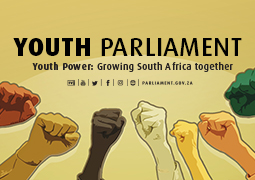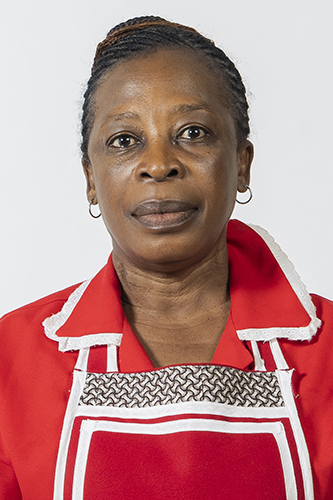
One of the Speakers of the Youth Parliament, Mr Xola Nqola, who is also the Member of the National Assembly, appealed to the members of the 2020 Youth Parliament to remain united by the spirit that kept them united throughout the duration of their sessions.
He said the 2020 Youth Parliament coincided with the commemoration of South Africa’s two historic days, 16 June 1976, when the youth took their demands to the streets, and 26 June 1955, when the people of South Africa came together to adopt the Freedom Charter.
The Parliament, which was attended by Members of Parliament (MPs), Members of the Provincial Legislatures (MPLs), municipal councillors, youth-led organisations, and non-governmental organisations (NGOs), took a list of resolutions that are going to be compiled into a report of the 2020 Youth Parliament.
The young people called for a legislation that will make it impossible to the employers across all the sectors to require a certain year of experience as a requirement for employment. They said some of the employers make that requirement as a very huge obstacle between young people and the world of employment. They urged the young MPs in the 6th Parliament to use their membership of Parliament to produce a law like that.
On education, the Youth Parliament said the government must ensure that all young people access education in whatever form, whether it is online, the government must make sure that no young person is denied education because it is electronical. The government must make sure, at all times, that all South African youth access education, including e-Learning. The government must identify the “missing middle” students. (The “missing middle” students are those who are too poor to afford university themselves, but also not poor enough to qualify for government funding.)
Members of the Youth Parliament said given the fast pace with which the world changes, something that has an impact on the issues that directly affect the youth, there must be at least two youth parliamentary sessions in a year. The agenda of each session must include reports on the implementation of the resolutions that were taken in the previous session. The National Youth Development Agency must also be invited to report on its work.
Members said young MPs in a parliamentary term must ensure that the resolutions are translated into the programmes of the parliamentary committees. They said each resolution must be referred to a relevant parliamentary committee.
Members said all the young ministers and the ministers of the relevant government departments and the directors-general must be invited to answer questions and clarify things that young people may want to understand. Furthermore, they said government departments must be led by young ministers who can lead them efficiently, and who can move with speed from one point to the next one during public protests.
Making closing remarks, the Deputy Chairperson of the National Council of Provinces, Ms Sylvia Lucas, thanked the young people for the manner in which they engaged each other, and how they concentrated on the issues at hand, and how they put their political differences aside. “You are the real hope and the future of the country. The manner in which you dealt with complex issues of unemployment, education and funding, was remarkable,” said Ms Lucas.
She agreed with their view that the ministers, especially those that are leading government departments that are relevant to the needs of the youth, should appear before the Youth Parliament in future.
By Mava Lukani
26 June 2020

